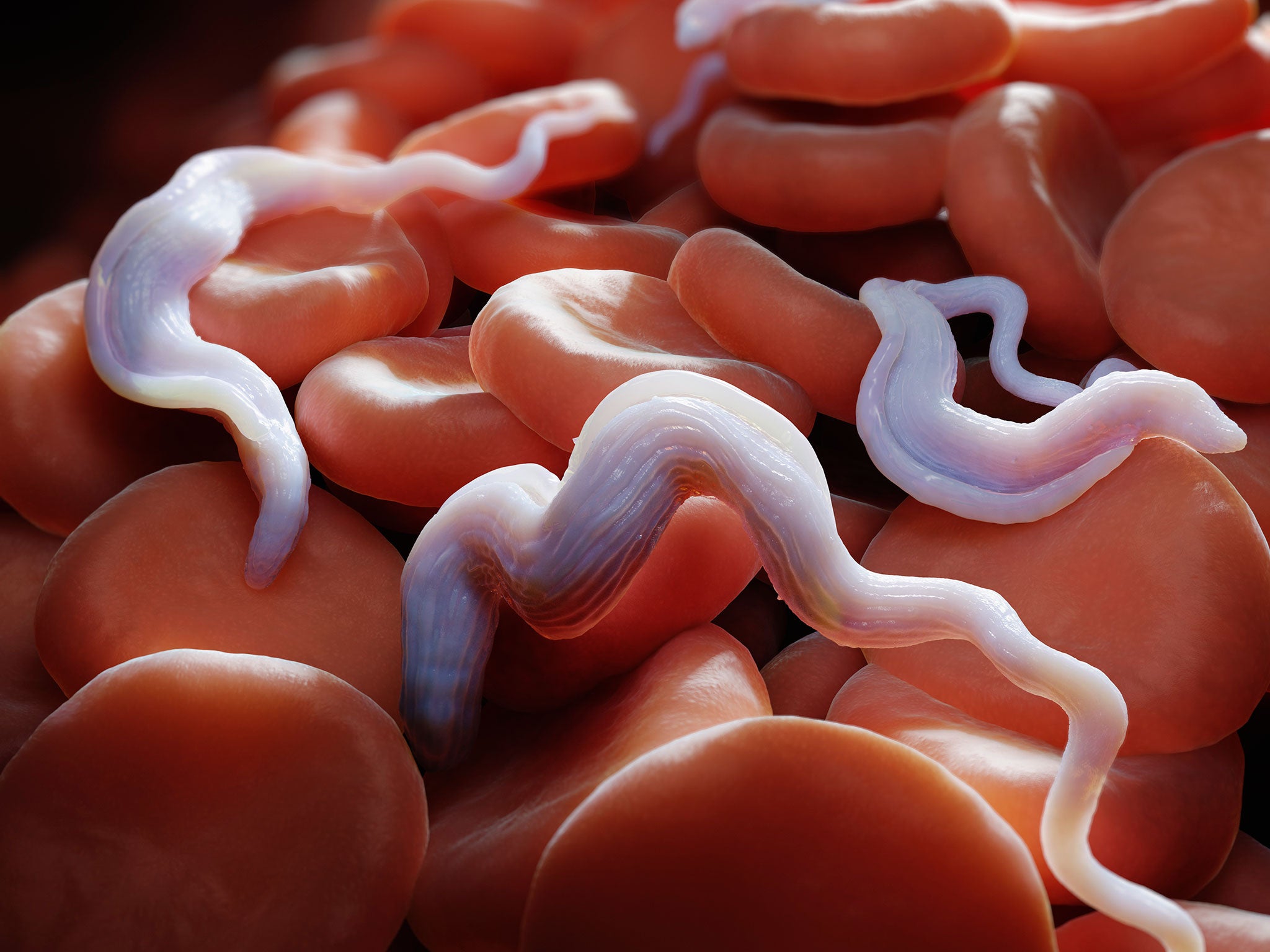African sleeping sickness parasite 'has not had sex in 10,000 years'
Study finds every parasite that has infected humans descended from one individual by asexual cloning

The microscopic parasite that causes African sleeping sickness has not had sex in more than 10,000 years, a study has found.
Its lack of libido was discovered by an analysis of the parasite’s genome which shows that every sleeping sickness parasite that has ever infected humans for the past several thousand years are all descended by asexual cloning from one individual.
Researchers believe the inability of the sleeping sickness parasite, Trypanosoma brucei gambiense, to engage in sexual reproduction should eventually lead to its evolutionary demise – although probably not for several thousand years to come.
The parasite kills more than 6,000 people a year in sub-Saharan Africa where it is transmitted from one person to another via the bite of the tsetse fly. It is thought it originally lived in wild animals but was transmitted into humans when they first began livestock farming about 10,000 years ago.
Researchers from Glasgow University’s Wellcome Trust Centre for Molecular Pathology found that the slight variations in its genome indicate that the species is entirely made up of asexual clones descended from a single ancestor without any of the gene mixing caused by sexual reproduction.
“We’ve discovered that the parasite causing African sleeping sickness has existed for thousands of years without having sex and is now suffering the consequences of this strategy,” said Willie Weir, the study’s lead author.
“An organism’s genetic blueprint is encoded in DNA packaged within structures called chromosomes. Most organisms have two copies of each chromosome and, through sexual reproduction, the DNA within the chromosomes can recombine randomly, in effect shuffling the deck of DNA cards,” Dr Weir said.
“This process generates genetic diversity and, through natural selection, undesirable combinations and mutations are eliminated from the population, promoting long-term survival of the species.
“However, some organisms appear not to have sex at all. Evolutionary theory predicts that they should face extinction in the long-term and that a lack of sexual recombination should leave a characteristic genetic ‘signature’ in their DNA. While being theoretically predicted for almost 20 years, evidence for this signature has been elusive,” he said.
Because it has not engaged in any sex, the chromosomes of the single-celled parasite have accumulated the tell-tale mutations of a species that has survived by cloning itself over and over again, said Annette MacLeod, a senior author of the study published in the on-line journal eLife.
“Essentially, the parasite compensates for its lack of sex by overwriting mutations through ‘copying and pasting’ DNA from one chromosome to another. However, our study suggests that this can only go some way to compensating for a lack of sex,” Dr MacLeod said.
“Theoretically, this parasite species cannot survive indefinitely without sex and the predicted consequence of this is that it will become extinct in the long-term,” she said.
Join our commenting forum
Join thought-provoking conversations, follow other Independent readers and see their replies
Comments
Bookmark popover
Removed from bookmarks